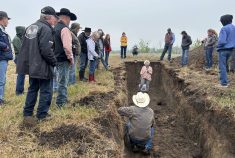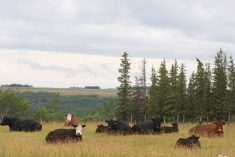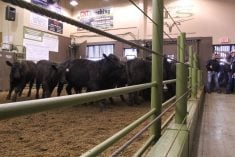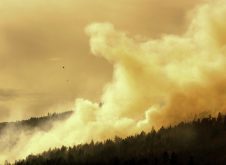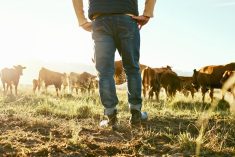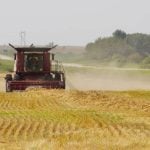The way that democracy, consensus and justice works is very hard-come-by. And all through the history of our country, we have lunged and lurched, sprinted and sauntered through a forest of ignorance, hatred and bigotry and yet hacked out for ourselves a path towards a clearing, a lighted place, which — make no mistake — can only remain a clearing if we maintain it, if we agree to enlarge it, if we promise ourselves and pledge to each other that it is worth our efforts. If we fail in this, that forest will take over, and the darkness will come and envelop us. — Adrienne Clarkson, former governor-general, speaking at Queen Elizabeth’s national commemorative ceremony at Christ Church Cathedral in Ottawa.
I used to spend a lot of time with my grandma, Mary Guenther. Although she’s been gone for 17 years, I can still see her at her kitchen table, a cigarette in hand and a coffee in front of her. She always sat in the same chair, so she was framed by a window facing north. The ranchland of the Cypress Hills unrolled behind her, and I still sometimes dream about the view from her kitchen window.
She loved to talk politics, even (or especially) with those who didn’t agree with her, as well as history (particularly Russian history). She was well-read and smart, so it was hard to win a debate with her. Despite all these serious conversations, she had a great sense of humour and laughed easily. I think she was a courageous woman in many ways, except when it came to mice.
Read Also
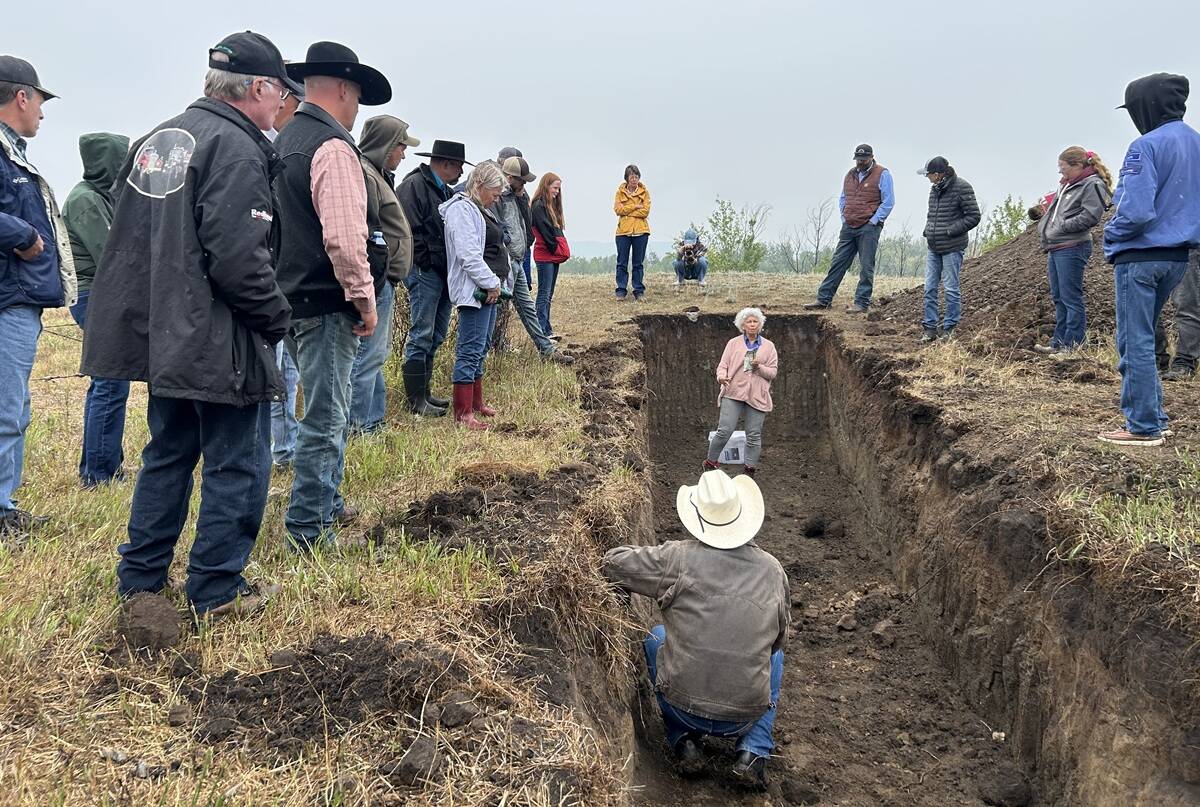
Improving soil health on the ranch
Yamily Zavala, PhD, talks soil health for farmers and ranchers at a grazing club field day at Paradise Hill, Saskatchewan.
Although she’s been gone a long time now, I still sometimes wonder what she would think about some current event or another, and wish she was around to discuss it. The war in Ukraine is a prime example — I don’t think I could find anyone with a better-informed opinion than her, at least within my circles. The recent death of Queen Elizabeth, and the public discourse around it, is another conversation I wish I could have had with my grandmother (she was also interested in the history of Britain’s Royal Family).
I don’t know exactly what she would say about any of these events today, and I don’t know how her opinions might have evolved over the last 17 years. But I think she would have agreed with Adrienne Clarkson’s quote above. One thing she did impress upon me was the need to always be on guard for democracy, and human rights. Grandma was a feminist, probably a result of life experience as much as anything. She was born the year after women were declared “persons” by the British courts, but it was still an uphill battle from there. Her husband, Chuck, died young in a tractor rollover, and she was left with a ranch to run and six wild kids to raise. This would be difficult to do today, but it must have seemed impossible when she set out to do it in 1959, a time when not every banker, ranch employee, etc., would have taken her seriously. But she did it.
It wasn’t just women like her whose rights she supported. She was a believer in equal rights for all, regardless of race, sexual orientation, political beliefs or religion. She didn’t have to agree with a person on every point, or have the same lived experience, to talk with them and care about them. Everyone was welcome at her kitchen table. Good thing, too, because her family became more diverse as the years went on.
In some ways, it seems like we’ve made the clearing a little larger in the last several years. Same-sex marriage was legalized on a federal level in 2005. There’s perhaps a little more hope of stopping high-profile, powerful predators post-Me Too. I think there’s also generally more awareness about the legacy of residential schools, early farming policy applied to Indigenous people and other historical injustices that we’re still seeing the effects of today.
None of this is easy. These conversations can be fraught and fill us with apprehension, and sometimes the public discourse seems toxic these days (at least that’s how I feel about it). But again, I think we can get through this if we approach each other with respect. These issues affect so many people we know in our families, our communities, our industry and beyond. We are not necessarily going to agree on every single issue, especially at first, but surely we can find enough common ground to beat back ignorance and bigotry. If you’re thinking about ranching and First Nations culture on the Prairies, for example, I think we have some things in common, such as an appreciation for large ruminants and their role in the grasslands ecosystem (and on our plates). Ultimately I think Julia Flinton, who is on the cover of our October 2022 issue, said it best:
“Whether you are from a generational ranch or a First Nations community, you’ve been neighbours for a long time, and I think being able to have safe and healthy conversations is really important.”
As for the points you and your neighbours may disagree on, there is also plenty of disagreement between producers within our industry at times.
Besides, it’s in our own interest to bring more people in, I think. We are facing huge, troublesome issues in Canadian society, as well as within the beef industry. We’re more likely to find effective solutions, or at least ways to manage these problems, by getting different perspectives, and working with other people who are facing the same issues. There are already people in our industry, of all ages, who get this and are working hard to maintain and enlarge the clearing. We just need to follow their lead.




